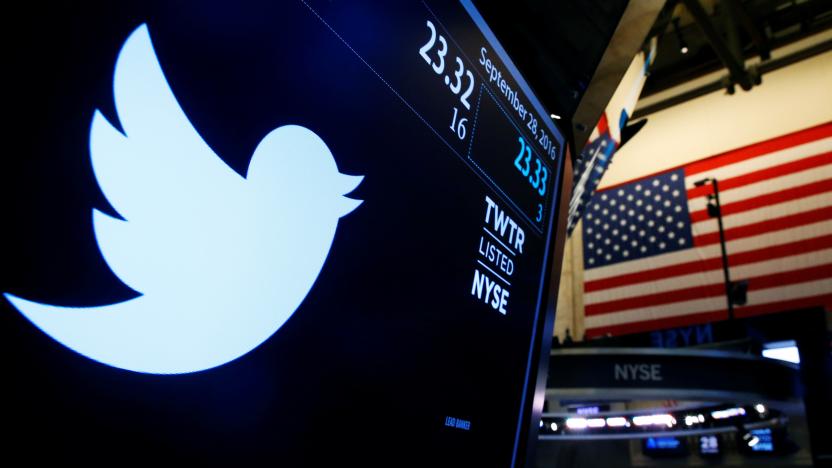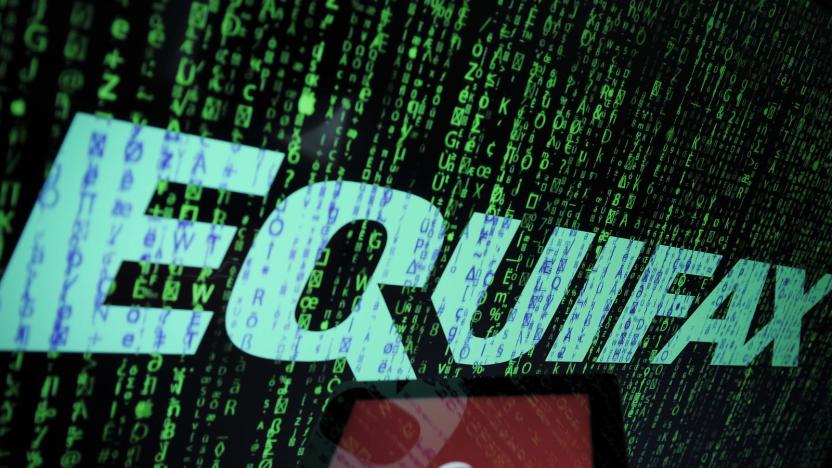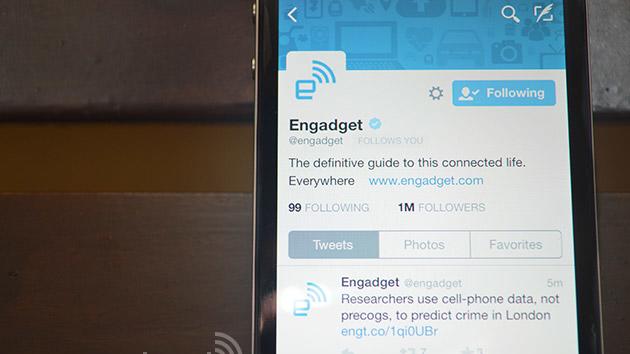NSL
Latest

Twitter will keep fighting to share government data requests
Twitter’s years-long battle over government surveillance and transparency isn’t over yet.

Senators ask credit agencies why they don't report FBI data requests
Tech companies have long disclosed the number of national security letters (NSLs) they get from authorities, but the credit reporting agencies that often dictate your financial future have been silent -- and Congress wants answers. Senators Elizabeth Warren, Ron Wyden and Rand Paul have sent letters to the CEOS of Equifax, Experian and TransUnion asking why the companies don't divulge how many NSLs they receive from the FBI, or release those requests once the non-disclosure orders end. These companies have the "responsibility" to come clean about their information handling when they have loads of "potentially sensitive data," the senators said.

Tech firms say FBI wants browsing history without warrant
Tech companies and privacy advocates are warning against new legislation that would give the FBI the ability to access "electronic communication transactional records" (ECTRs) without a warrant in spy and terrorism cases. ECTRs include high-level information on what sites a person visited, the time spent on those sites, email metadata, location information and IP addresses. To gain access to this data, a special agent in charge of a bureau field office need only write a "national security letter" (NSL) that doesn't require a judge's approval. It's worth noting that ECTRs don't amount to a full browsing history. If a suspected terrorist were reading this article, the FBI would only see they read "engadget.com" and how long for, rather than the specific page links. Additionally, the ECTRs won't include the content of emails, search queries, or form content, but will feature metadata, so the FBI would know who someone is messaging and when.

Yahoo releases content of three FBI data requests to public
Today, Yahoo made minor history by becoming the first company to publicly confirm that it has been issued National Security Letters (NSLs) from the FBI. It sounds like a simple story, but it's actually a huge win for transparency: until recently, gag orders kept companies like Yahoo from acknowledging NSLs in all but the vaguest of terms. Now, thanks to the USA Freedom Act, the company is able to divulge the contents of three FBI data requests made since 2013.

Reddit probably got subpoena'd by the FBI or NSA
When companies receive National Security Letters (NSLs) from the FBI or a FISA (Foreign Intelligence Surveillance Act) request from the NSA, they also get a gag order barring them from telling anyone. There is one way that websites can inform users that they've been subpoena'd without breaking the law, though: Using a "warrant canary." Those are simply statements in transparent reports that indicate a site has not received a letter since a certain date. Reddit had one in its 2014 report (below), meaning it had never received a subpoena as of January 29th, 2015. Last year's report, released yesterday, includes no such remark, meaning that the company did indeed receive the dreaded letter sometime last year.

ISP wins 11-year battle to reveal warrantless FBI spying
A US district court has struck down an 11-year-old gag order imposed by the FBI on Nicolas Merrill, the former head of a small internet service provider. Originally issued in 2004, it forbade Merrill from revealing that he'd received a so-called national security letter (NSL), a warrantless demand for customer data. The Electronic Frontier Foundation believes about 300,000 such letters have been sent since the Patriot Act was enacted in 2001, but the decision signals the first time that a gag order has been lifted. "Courts cannot, consistent with the First Amendment, simply cannot accept the Government's assertions that disclosure would... create a (public) risk," said Judge Victor Marrero.

Twitter sues US government over Transparency Report restrictions
Twitter has been publishing what bits of info it's allowed to concerning national security requests for some time now, but the social media feed wants the ability to publish the whole thing. Today, the outfit filed a lawsuit aiming to get approval to post its entire transparency report. In a blog post, VP of Legal Ben Lee says that the company is asking a California District Court "to declare these restrictions on our ability to speak about government surveillance as unconstitutional under the First Amendment." As is stands, Twitter and others can't communicate the exact number of national security letters (NSLs) or FISA court orders, even if there aren't any. If you'll recall, it tried to beef up transparency outside of court earlier this year, but Twitter couldn't come to terms with the US Department of Justice and FBI on as much as a redacted version of the full report.





